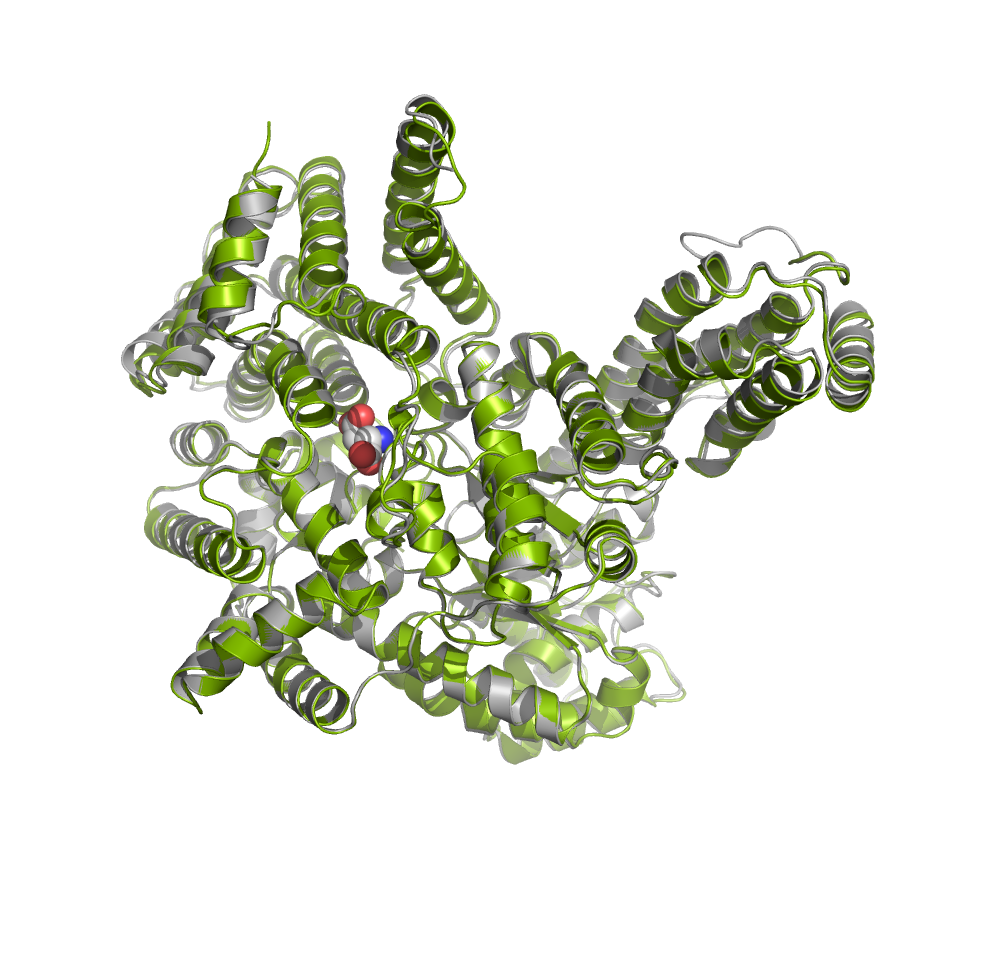Prof. Dr. Georg Groth
Research focus
Based on the type of CO2 assimilation, plants can be divided in three photosynthetic types: the C3-type, the C4-type and the Crassulacean Acid Metabolism. C4 photosynthesis is an adaptation over the classical C3 pathway conferring increased photosynthetic efficiency in hot and dry environments in terms of using water, nitrogen and other mineral nutrients for the production of valuable biomass. An important step in the evolution of the C4 pathway is the recruitment of enzymes required for initial CO2 fixation and CO2 release, such as Phosphoenolpyruvate carboxylase (PEPC) and the Malic Enzyme (ME), respectively. The predecessors for these C4 enzymes are enzymes from C3 plants involved in non-photosynthetic metabolic processes. In spite of their high sequence identity the C4 type enzymes have distinctly different kinetic and regulatory properties.
We aim to elucidate the molecular basis for the changed regulatory and kinetic properties of the C4 type enzymes using a combined approach of genetics, biochemistry and structural studies. We apply structure determination by x-ray diffraction methods, site-specific amino acid substitution and kinetic studies on recombinant proteins from the C3 plant Flaveria pringlei and the C4 plant Flaveria trinervia.
Based on high resolution crystal structures of PEPC from F. pringlei and F. trinervia we have identified the molecular basis for the enhanced feedback inhibitor tolerance of the C4 enzyme which is considered an essential achievement in the evolution of the C2 PEPC from the C3 ancestor. Using our high resolution structural data we are designing mutants with improved kinetic and regulatory properties. Moreover, we are trying to improve protein stability by site-directed mutagenesis and fluorescence-based thermal stability assays. We are also interested to identify molecules that differentially interact with the C3 and C4 isoenzymes – either for selective activation or inhibition. Further targets for a more comprehensive understanding on the structural evolution of the C4 pathway are Pyruvate Phosphate Dikinase (PPDK) and Malic Enzyme (ME) from F. pringlei and F. trinervia.
The ten most important publications
- Nguyen GT, Erlenkamp G, Jäck O, Küberl A, Bott M, Fiorani F, Gohlke H, Groth G (2016) Chalcone-based Selective Inhibitors of a C4 Plant Key Enzyme as Novel Potential Herbicides. Scientific reports 6:27333.
- Bisson MM, Kessenbrock M, Müller L, Hofmann A, Schmitz F, Cristescu SM, Groth G (2016) Peptides interfering with protein-protein interactions in the ethylene signaling pathway delay tomato fruit ripening. Scientific reports 6:30634.
- Schlieper D, Förster K, Paulus JK, Groth G (2014) Resolving the activation site of positive regulators in plant phosphoenolpyruvate carboxylase. Molecular plant 7(2):437-440.
- Paulus JK, Förster K, Groth G (2014) Direct and selective small-molecule inhibition of photosynthetic PEP carboxylase: New approach to combat C4 weeds in arable crops. FEBS letters 588(12):2101-2106.
- Paulus JK, Schlieper D, Groth G (2013) Greater efficiency of photosynthetic carbon fixation due to single amino-acid substitution. Nat Commun 4:1518.
- Ju C, Yoon GM, Shemansky JM, Lin DY, Ying ZI, Chang J, Garrett WM, Kessenbrock M, Groth G, Tucker ML, Cooper B, Kieber JJ, Chang C (2012) CTR1 phosphorylates the central regulator EIN2 to control ethylene hormone signaling from the ER membrane to the nucleus in Arabidopsis. Proc Natl Acad Sci U S A 109(47):19486-19491.
- Vollmar M, Schlieper D, Winn M, Büchner C, Groth G (2009) Structure of the c14 rotor ring of the proton translocating chloroplast ATP synthase. The Journal of biological chemistry 284(27):18228-18235.
- Bisson MM, Bleckmann A, Allekotte S, Groth G (2009) EIN2, the central regulator of ethylene signalling, is localized at the ER membrane where it interacts with the ethylene receptor ETR1. Biochem J 424(1):1-6.
- Groth G (2002) Structure of spinach chloroplast F1-ATPase complexed with the phytopathogenic inhibitor tentoxin. Proc Natl Acad Sci U S A 99(6):3464-3468.
- Groth G, Walker JE (1997) Model of the c-subunit oligomer in the membrane domain of F-ATPases. FEBS letters 410(2-3):117-123.

